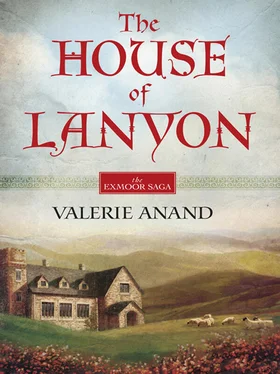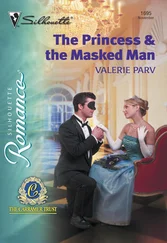1 ...6 7 8 10 11 12 ...28 The entire family, as if they were puppets whose strings were held by a single master hand, swung around to look at him.
“I’ve not heard this!” Nicholas said. “You know who this fellow is that Liza’s supposed to be meeting? Well, who is he and how did you find out so much?”
“Gossip!” said Margaret, interrupting forcefully and snagging her thread in her annoyance. “Liza’s a sensible girl, I tell ’ee!”
“She knows all the ins and outs of the business,” said Nicholas. “I grant you that. She’s handy with a loom and an abacus, as well. She understands figures the way I do and the way that the rest of you, frankly, don’t! But she gets dreamy sometimes. Don’t know where she gets that from. And now folk are asking why’s she still single and is there some dark reason? Sounds to me as if there maybe is and the whispers have something behind them after all! Well, Uncle Will? What have you heard?”
“I sit here by this window on warm days and folk stop to talk to me,” said Will. “I didn’t want to repeat the talk. Not sure I should, even now. These things often fade out if you leave them be. Don’t matter if she’s had a kiss in the moonlight or a cuddle in a cornfield, as long as she don’t argue now.” The fire belched again, swirling smoke right across the room, and he choked, waving a wrinkled hand before his face. “Devil take this smoke!”
There were exclamations of protest from all around. “That won’t do, Great Uncle!” said Nicholas bluntly. “If you know a name, then tell us. Who does gossip say the man is?”
“Young fellow working up at the castle, studying with the Luttrells’ chaplain, that’s who,” said Great-Uncle Will. “I don’t know his name, but I know the one they mean—he’s stopped by to talk to me himself. Redheaded young fellow. In minor orders yetawhile, but he’ll be a full priest one of these days. So he b’ain’t husband material for Liza or any other girl. You get her fixed up with Peter Lanyon, and quick.”
“I can hardly believe it.” Margaret had stopped her spinning wheel.
Aunt Cecy gave her a look which said, I told you you couldn’t keep on with that and attend to this business as well, and said aloud, “Where is Liza, anyway?”
“In the kitchen,” said Margaret. And then stopped short, looking through the window. Liza, far from being in the kitchen, must have slipped out the front door only a moment ago. She was crossing the road, going away from the house on some unknown errand.
Uncle Will turned to peer after her. “There she goes. Well, let’s hope all she wanted was a breath of air and that she b’ain’t runnin’ off with her red-haired swain yetawhile. You take an old man’s advice. Say nothing to her about him. Pretend we don’t know. No need to upset the wench. But get her wed, and fast. Get word off to Richard Lanyon tomorrow and tell him yes. That’s what I say.” Another wave of smoke poured out of the fireplace and he choked again. “Can’t anyone do something about this? Put a bucket of water on that there fire and get to sweeping the chimney!”
CHAPTER FOUR
ONE MAGICAL SUMMER
Peter’ll do as far as I’m concerned. When Liza heard her father say those words, she had heard enough. She sat back on her heels, miserably thinking, while the murmur of voices continued below her. At length she rose quietly from the floor, picked up a cloak, unbolted her door and stole out. The stairs were solid and didn’t creak. She went softly down them, glad that in this house they didn’t lead into the big main room as they did in many other houses, but into a tiny lobby where cloaks and spare footwear were kept, and from which the front door opened.
She could hear a buzz of talk and a clatter of pans in the kitchen. If anyone saw her, she would probably be called in to help and chided for having left it in the first place. She opened the front door as stealthily as she could, darted through, closed it and set off, crossing the road, trying to lose herself quickly behind the stalls in the middle of it, in case anyone should be looking from the window.
Bearing to the right, past the last cottages and the Abbot’s House opposite, she hurried out of the village. Then she turned off the main track, taking a path to the left, crossed a cornfield and emerged onto the track that led to the next village to the west, Alcombe, two miles off.
She felt uneasy as she crossed the field, for here, as at Allerbrook, the corn had been cut and a couple of village women were gleaning in the stubble. Although they were some way off and did not seem to notice her, she was nervously aware of them.
Beyond the cornfield stood a stone pillar on a plinth, a monument to the days of the great plague in the last century. Villages then had kept strangers out in case they brought disease with them, but commerce had to go on; wool and yarn, cloth and leather, butter and cheese, flour and ale must still be bought and sold and so, outside many villages, stone pillars or crosses had been set up to show where markets could be held.
“I’ll be by the plague cross at ten of the clock on Tuesday,” Christopher had said at their last meeting. “I’ll have an errand past there that day. The Luttrells send things now and then to an old serving man of theirs in Alcombe. He’s ailing nowadays. They often use me for charitable tasks like that, and lend me a pony. Meet me there if you can. I’ll wait for you for a while, though I’d better not linger too long.”
It was only just past ten o’clock, Liza thought as she slipped out of the field, out of sight of the gleaning women. Had he waited? Would he be there?
He was. There was his pony, hobbled and grazing by the track, and there was Christopher, his hair as bright as fire, sitting on the plinth.
“Christopher!”
He was looking the other way, perhaps expecting her to come along the main track instead of through the field, but he sprang up at the sound of her voice, and turned toward her. She ran into his arms and they closed about her. “Oh, Christopher! I’m so glad to see you!”
“Are you? What is it, sweeting? Something’s wrong, isn’t it? I can always tell.”
“Yes, I know you can!”
That was how it had been from the beginning, when they met in the spring, at the May Day fair in Dunster. It had been a fine day, and the fair was packed and raucous. There were extra stalls as well as the regular ones, offering every imaginable commodity: gloves, pottery, kitchen pans and fire irons, hats, belts, buckles, cheap trinkets, questionable remedies for assorted ills, lengths of silk and linen from far away as well as the local woollen cloth, sweet cakes and savoury snacks cooked on the spot over beds of glowing charcoal. There were entertainments, too: a juggler, tumblers, a minstrel playing a lute and singing, a troupe of dancers and a sword swallower.
And, creating an alleyway through the crowd and inspiring a different mood among the onlookers, an unhappy man stripped to the waist except for a length of undyed cloth slung around his neck. Splashed with dirt and marked with bruises, he was escorted by the two men who that year were Dunster’s constables. Ahead of them walked a boy banging a drum for the crowd’s attention and announcing that by order of the Weavers Guild of Dunster, here came Bart Webber, who had been mixing flax with his woollen yarn to make his cloth, and selling it as pure Dunster wool, and had been fined for it at the last manor court.
It could have been worse. The hapless Master Webber hadn’t been whipped or put in the stocks, and the crowd was good-humoured and not in a mood for brutality. Many of them knew him socially, which inclined them to restraint or even, in some cases, sympathy. He was still drawing a few jeers, though, and an occasional missile—handfuls of mud and one or two mouldy onions, which had caused the bruises. His situation was quite wretched enough and his face was a mask of misery and embarrassment. Liza, distressed, turned quickly away.
Читать дальше












